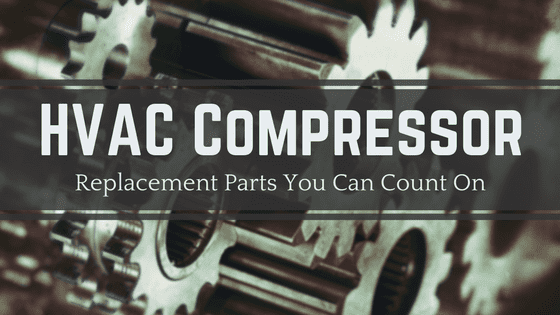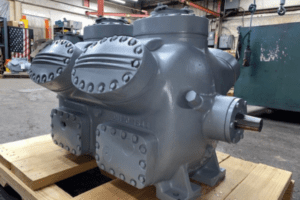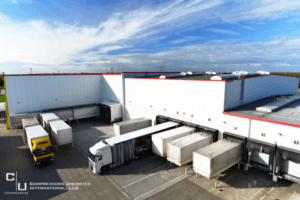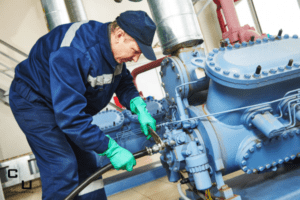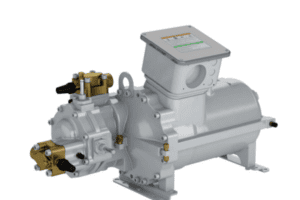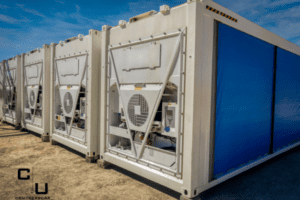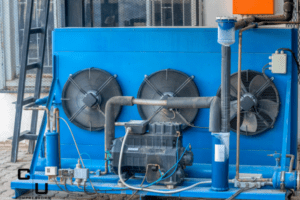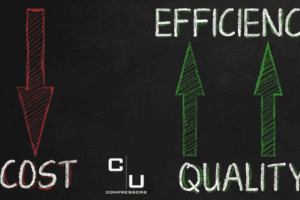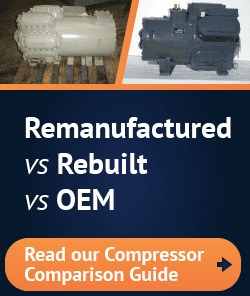The commercial compressor is the heart of your cooling or refrigeration system. It provides the mechanical work to ensure refrigerant is available to the rest of the system. When other components lose efficiency, compressors work harder – but when the compressor fails, the whole system goes down, and that’s not good for anyone.
The compressor is responsible for both cooling and heating. Without it, you might need to close your doors and lose thousands of dollars in business opportunities. Foot traffic can be affected simply because a compressor is lagging behind, even before it fails. People expect that “blast” of cool air when they walk through your doors!
Compressor issues can wreak havoc – on your personnel, the public, and your business.
The solution is to have a plan in place for HVAC compressor replacement. Even under the best conditions, a commercial HVAC compressor usually lasts between eight and ten years. By having a plan to replace your compressor, you can avoid one of the biggest business mistakes: Replacing your whole HVAC system.
In most cases, it simply isn’t necessary.
Replacing your commercial HVAC compressor alone can usually get your system back in order.
Save Money with a Replacement AC Compressor, Not a Whole New HVAC System
Your HVAC system consists of many components that all work together. Depending on how it’s designed, it may have equipment up on the roof, all throughout your building, and outside. While many of these components can wear out over time, they all rely on one core component: Your HVAC compressor.
By replacing your commercial AC compressor with a compressor of the same make and model, you can often get your HVAC up and running as if nothing ever happened. A replacement commercial compressor should be your first stop, no matter if your existing compressor aged out or failed.
If Your Compressor Fails Unexpectedly, Evaluate Your HVAC System Before Replacement
It’s not necessary to replace your whole HVAC system, but you should still evaluate your system’s health if your last compressor failed unexpectedly. Today’s commercial compressors are highly resilient and unlikely to have unexpected breakdowns as long as they get regular maintenance.
When a compressor fails unexpectedly, check the environment for problems. Flooding and slugging can destroy even a new compressor in minutes to hours. If the environment isn’t protected against the infiltration of liquids into a compressor, then the replacement equipment will also be at risk.
Another matter to take into consideration is the health of your electrical system. Even today’s highly efficient AC compressors draw a great deal of power when they power on for the day. If your wiring is overburdened or running hot, compressors may be getting damaged as they receive the incorrect voltage.
Root cause analysis is the key to moving forward after any compressor failure. Compressor experts can help you diagnose the problem before you make a replacement. If you order a remanufactured commercial compressor, then your remanufacturing team can inspect your old compressor core to learn more.
Old Compressor Cores Get a New Lease on Life with Compressor Remanufacturing
With other types of purchases, “old” vs. “new” is pretty cut and dry.
That’s not the case with a commercial HVAC compressor.
When you buy a “new” commercial HVAC compressor, you’re not necessarily getting an all-new system directly from the OEM. Most OEMs work with affiliated wholesalers. Guess what? The majority of units advertised as new that come from these wholesalers use compressor cores that have already been in service before.
In effect, you are paying for the brand name that the wholesaler gets to use.
A truly “new” compressor would need to be fabricated by the OEM with all-new standard components. This process can take months, is extremely costly to the end user, and results in tons of manufacturing waste.
By contrast, a remanufactured commercial compressor might be less charitably called “used.” It, too, may be based on your existing compressor core – unless that core is damaged. But remanufacturing is an extensive process that ensures every aspect of your compressor is ready for eight to ten years of service.
With remanufacturing from a trusted company like Compressors Unlimited, the compressor core is only the beginning. The compressor is completely disassembled, inspected, and cleaned. All parts are verified and replaced as necessary. Vulnerable components like o-rings are replaced 100% of the time.
As the compressor is gradually remanufactured, it faces a battery of tests that prove it is ready to meet all of your performance and environmental commitments. Later on, this includes submersion – the best leak test a compressor can get.
The end result is this: A remanufactured compressor might be incorrectly called “used,” but it offers the performance and longevity of an all-new unit at a fraction of the cost and time.

